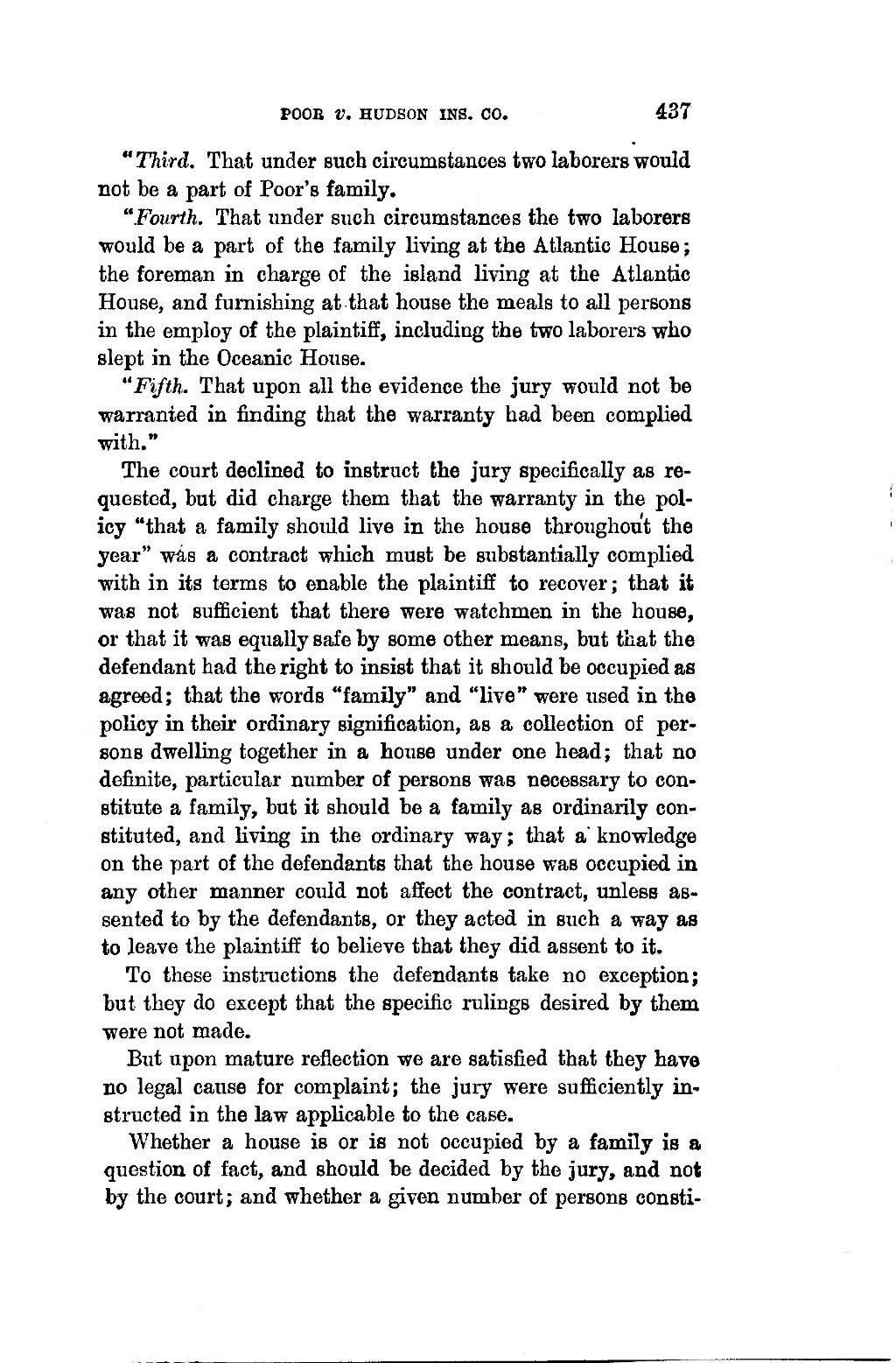POOE V. H0DSON INS. 00. 437 �" Third. That under such circumstances two laborers would not be a part of Poor's family. �"Fourth. That under such circumstances the two laborers would be a part of the family living at the Atlantic House ; the foreman in charge of the island living at the Atlantic House, and furnishing at that house the meals to all persons in the employ of the plaintiff, including the two laborers who slept in the Oceanic House. �"Fifth. That upon all the evidence the jury would not be warranted in finding that the warranty had been complied with." �The court declîned to instruct the jury specifically as re- quested, but did charge them that the warranty in the pol- icy "that a family should live in the house throughout the year" was a contract which must be substantially complied with in its terms to enable the plaintiff to recover ; that it was not sufficient that there were watchmen in the house, or that it was equally safe by some other means, but that the defendant had the right to insist that it should be occupied as agreed; that the words "family" and "live" were used in the policy in their ordinary signification, as a collection of per- sons dwelling together in a house under one head; that no definite, particular number of persons was necessary to con- stitute a family, but it should be a family as ordinarily con- stituted, and living in the ordinary way ; that a knowledge on the part of the defendants that the house was occupied in any other manner could not affect the contract, unless as- sented to by the defendants, or they acted in such a way as to leave the plaintiff to believe that they did assent to it. �To these instructions the defendants take no exception; but they do except that the specifie rulings desired by them were not made. �But upon mature reflection we are satisfied that they have no legal cause for complaint; the jury were sufficiently in- structed in the law applicable to the case. �Whether a house is or is not occupied by a family is a question of fact, and should be decided by the jury, and not by the court ; and whether a given number of persons consti- ����
